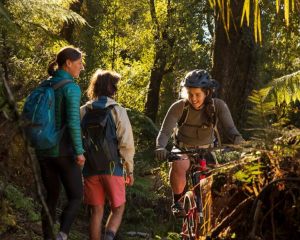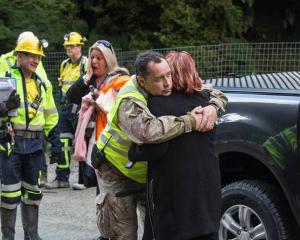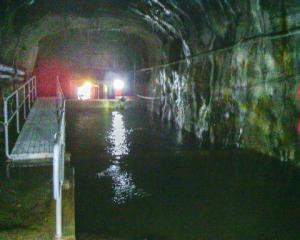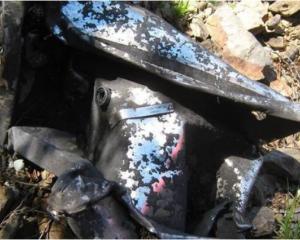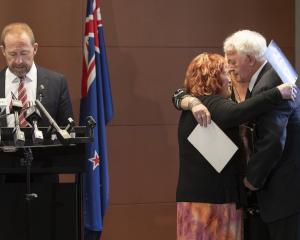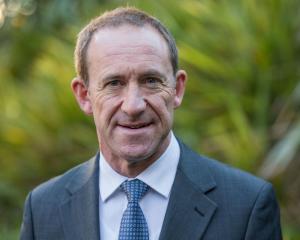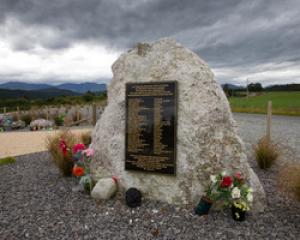State-owned Solid Energy yesterday opened up the debate on whether or not it was feasible for parts of the closed Pike River to be opencast mined.
The country's largest miner believes the Pike River Coal mine could only be developed by a long-term integration of underground and opencast mining.
Receivers PricewaterhouseCoopers said last week the mine was for sale and there had already been interest in it.
The receivers took over the mine from police last week nearly four months after 29 workers were entombed when an explosion ripped through the newly developed underground mine, high in the Paparoa Range, about 50km northeast of Greymouth.
Craigs Investment Partners broker Peter McIntyre congratulated Solid Energy for expressing its desire to take over the Pike River Coal mine and for opening up the debate on opencast mining.
"The issue needs to be addressed and discussed openly so that all options and opinions are out in public. I believe there is a case for Pike to be opencast at some point. It is a huge mineral resource."
A value of $10 billion was put on the Pike River resource at the weekend.
The price of hard coking coal had more than doubled in the last few months and global companies were going to the "back of beyond" to mine the resource, he said.
Two tonnes of hard coking coal was needed to produce three tonnes of steel and the demand for steel was still high.
Mr McIntyre said it made sense for a state-owned enterprise such as Solid Energy to take over the mine, given its experience on the West Coast.
It would be better for all concerned if a New Zealand miner was involved in the reopening of the mine although global interest in Pike River was expected.
Also, either the Minister of Energy or Minister of State-Owned Enterprises should have some form of oversight, he said.
Solid Energy chief executive Don Elder yesterday warned that Pike River was one of the most challenging coal resources in the world to develop and there were several issues that had to be resolved.
Further substantial exploration and other work were needed to confirm a credible mine plan.
The existing mine assets might not form a significant part of any future mining operation, leaving only the coal permit and access agreements as the primary assets of value.
"Obviously, as a potential purchaser of some of Pike River assets, we have a vested interest but after what everyone has been through, it is a time for reality."
Mining the Pike River resource in a way that was safe, economically viable and met and respected the wishes of the community and the families of those who died had many challenges, Dr Elder said.
A non-negotiable part of that included the wishes of the families having priority in considering all options including potential recovery, if feasible, of the 29 miners' bodies.
The same applied to the unsecured creditors of the West Coast.
Any solution to invest in and work the mine needed to address that issue as a top priority, he said.
"We're very concerned that this resource has been the subject of unrealistic expectations for too long.
Continuing this will lead to more disappointment and another set of mining and financial issues further down the track."
Parts of Pike River could be opencast mined, Dr Elder said.
However, even if allowed, it would be among the most difficult and challenging opencast operations anywhere in the world considering the resource, access, infrastructure and the absolute requirement above all to do it safely.
The area best suited for opencast mining was likely to be the area of the coal resource about which least was known and which presented most risks - geologically, geographically and environmentally, he said.
Parts of the resource might be mined underground but Solid Energy had major reservations about suggestions that the existing underground mine operations could simply continue with some changes.
"If the value of this total coal resource is ever to be realised, it will only be through a very carefully planned and developed long-term integration of underground and opencast mining. Anything other than this will risk sterilising a significant part of this valuable coal resource," Dr Elder said.

